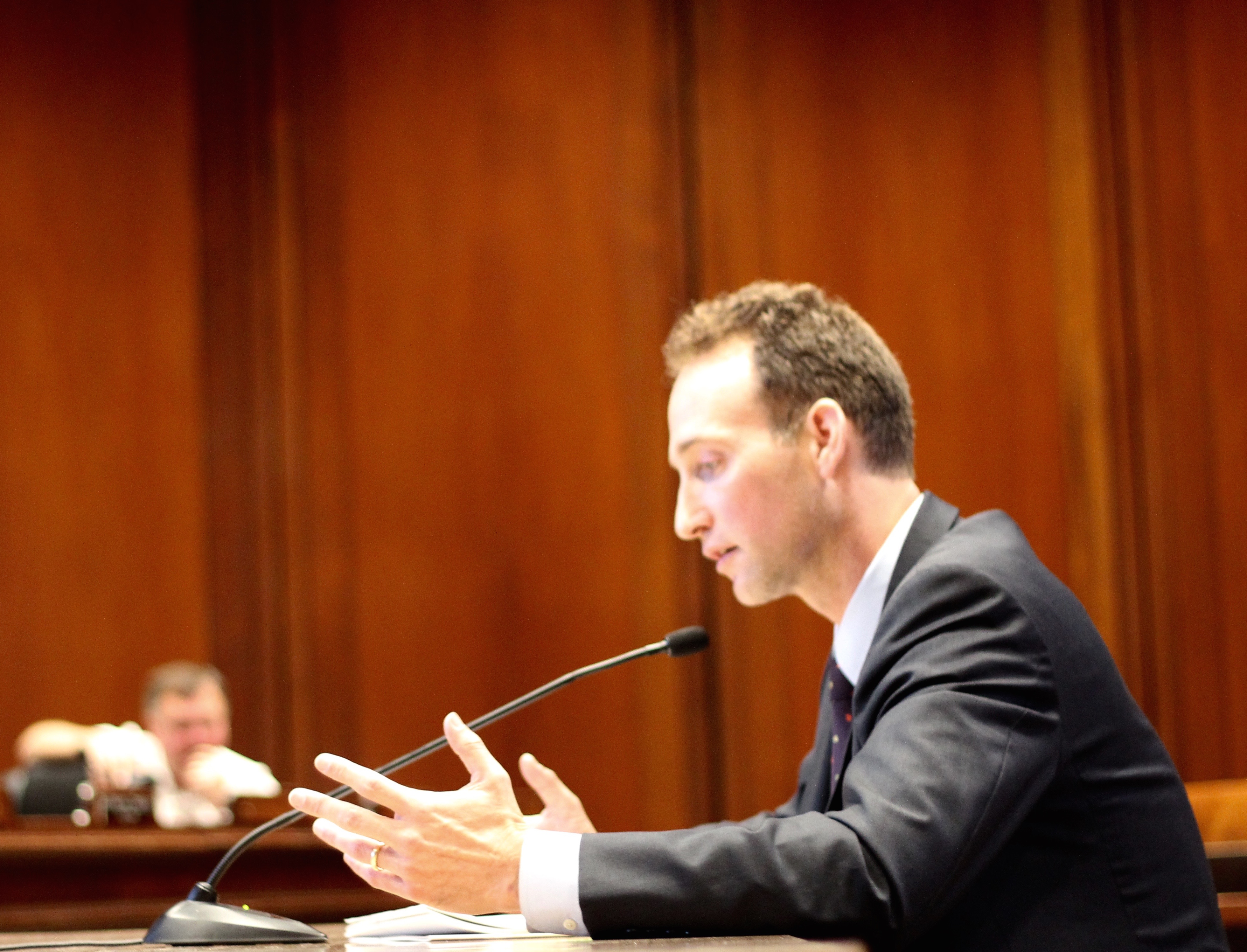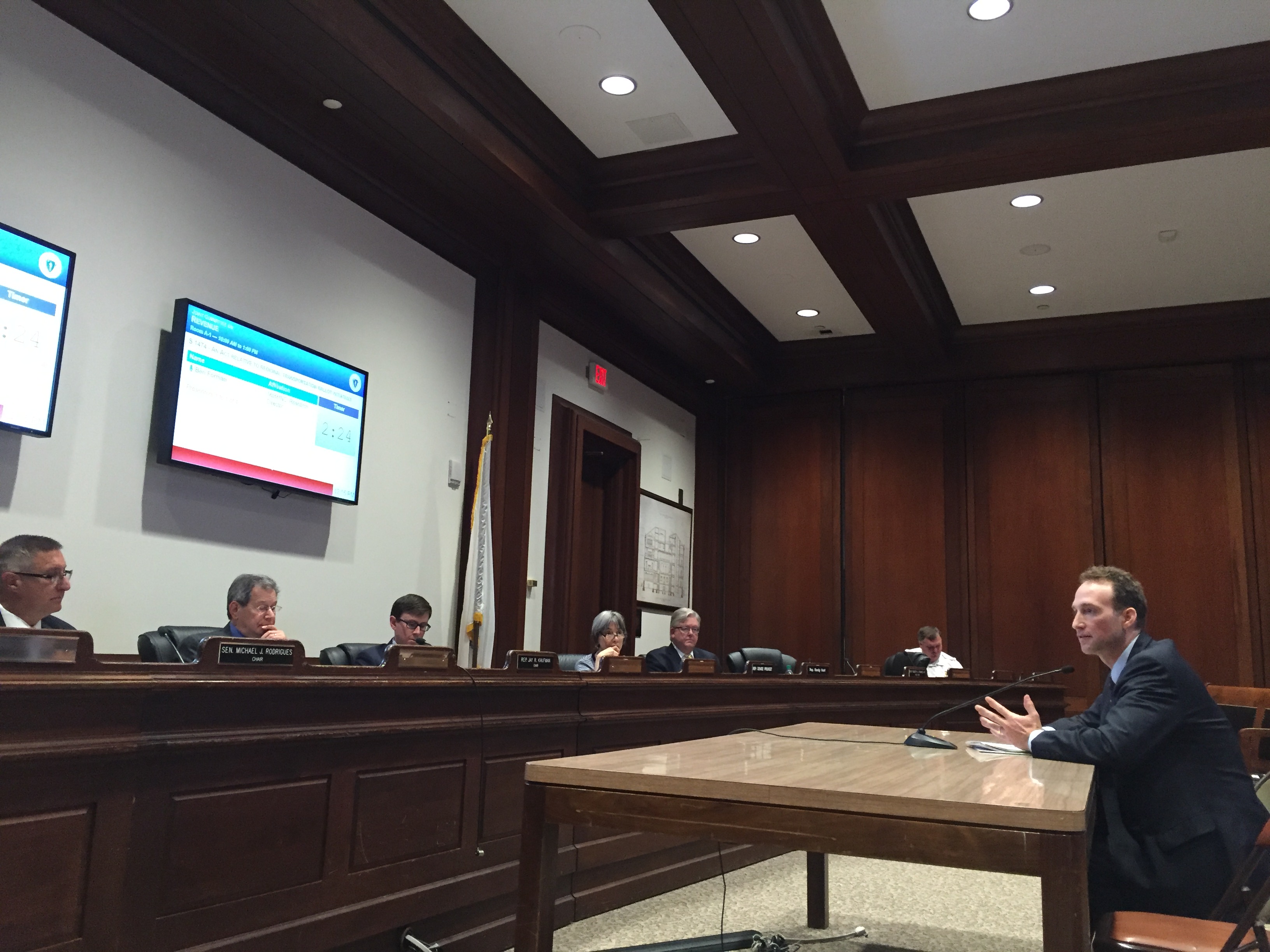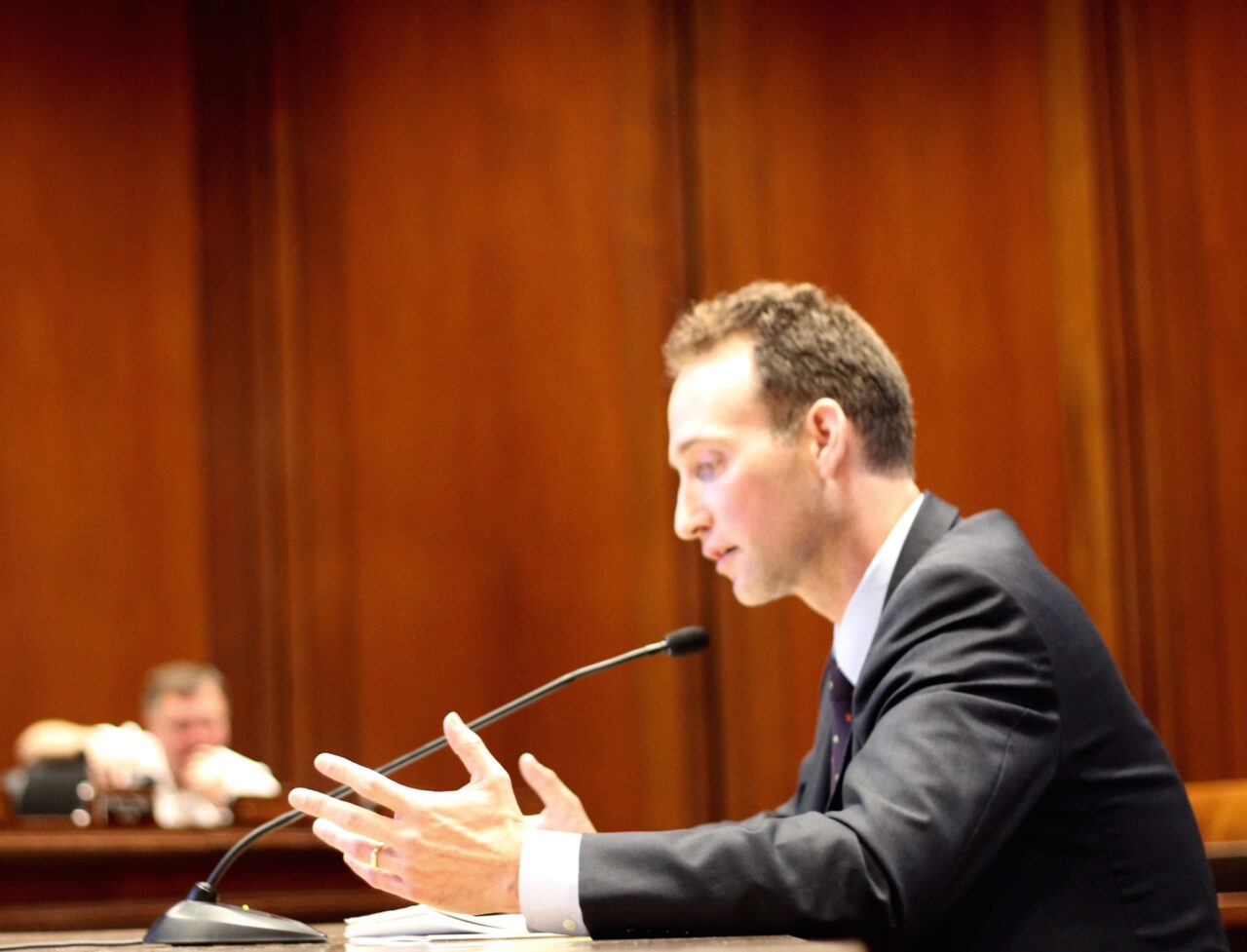
In 2010, we put out a MassINC white paper looking at revenue options to fund transportation infrastructure in a manner that supports economic growth across our entire Commonwealth. Our major conclusion was Massachusetts needed a regional approach, a model that works for many other states.
Five years later, this idea is gaining traction.
On Tuesday we offered testimony before the Joint Committee on Revenue in support of regional transportation finance legislation sponsored by Senator Benjamin Downing (S.B. 1474). Along with a number of experts on transportation finance testifying in support of the bill, we believe that giving regions the ability to put local transportation taxes on the ballot for voters to approve would be a major step forward for our Commonwealth.
Different parts of the state have dramatically different transportation needs. Supporting Greater Boston’s dense urban growth requires expensive mass transit infrastructure. These investments generate economic development and quality of life benefits, but these benefits are primarily enjoyed by residents in and around the urban core. Many believe that transportation infrastructure should be paid for by users-those who drive on the roads or ride the trains. Having the people who benefit from transit infrastructure pay for it is a step toward efficiency and fairness.
For Gateway Cities, a move toward regional transportation finance is critical. The longer we wait for Boston to figure out a way to pay for its transportation infrastructure, the longer the state will be forced to defer the investments we need to reposition Gateway Cities for the new economy.

Regional transportation finance will give each region of the state the ability to chart its own destiny. Taxpayers could finally get past the dysfunctional transportation bureaucracy. It’s a chance to start a fresh conversation about what kind of infrastructure they require to accomplish their regional economic development objectives and how they can work together to build it.
Massachusetts voters clearly support the idea. In his testimony to the committee, Steve Koczela cited four different surveys conducted by the MassINC Polling Group over the past three years, finding “widespread and stable level of support … [with] 70 and 75 percent of voters agreeing that cities and towns or regional planning agencies should have the authority to place funding measures for their areas on the ballot for voters to approve or reject.”
You’ll notice that the regional transportation finance conversation is absent in this week’s media coverage. For this approach to gain momentum, Gateway City leaders must raise their voices and draw attention to regional needs and aspirations that have been placed on hold.
Ben Forman
Executive Director
Gateway Cities Innovation Institute
Housing & Economic Development
The SouthCoast Development Partnership asks businesses what it will take to get them to invest in Gateway Cities.
With rents and home values in Quincy on the rise, a city councilor is proposing to eliminate the exemption for downtown developers to bypass the affordable housing ordinance and require them to make at least 10 percent of their new units affordable.
Brockton holds a community workshop to gain input from residents and businesses about developing an action strategy for its downtown.
In the wake of an eight-alarm fire on Stevens Street last week that destroyed a building, Haverhill is looking again at rezoning, with the goal of drawing state money to develop the area.
Got questions about the MGM Springfield hotel design change? MassLive has some answers.
MassBenchmarks once again calls attention to “troubling imbalances” in economic growth across the Commonwealth.
The Executive Office of Housing and Economic Development is bringing city leaders together in Worcester on Monday to unveil the Urban Agenda grant application process.
Writing for Governing, Bill Fulton says planners need to think more broadly to revitalize poor urban neighborhoods.
Education
State officials unveil their turnaround plan for the Holyoke school system.
UMass Dartmouth and Fall River are partnering up to try and fill the need for ESL teachers in the district.
A survey finds teachers in Worcester believe too much time is devoted to testing students.
The Republican profiles one of the nine principals working on turning around a failing middle school in Springfield.
Fall River Mayor Sam Sutter approves the transfer of $1.6 million from the nearly $4 million the city holds in “free cash” to bring the schools close to the required net spending level.
A new teacher’s contract in Pittsfield could serve as a model for other districts.
A new federal study shows students of all races do worse in schools with a high-density of minorities as opposed to students in schools with a low population of minorities.
Check out this great webinar we co-hosted with MICCR on career literacy.
Governance/Elections
The two candidates knocked out in the preliminary have thrown their support behind former mayor William Phelan in his race against Quincy Mayor Thomas Koch.
A Sun editorial heaps praise on Sen. Jennifer Flanagan of Leominster and her legislative efforts to fight opioid addiction.
 Creative Placemaking/Transportation
Creative Placemaking/Transportation
Local artists are painting “creative crosswalks” in Haverhill’s Riverfront Cultural District and local restaurants in an effort to bring art and business together in a way that boosts tourism.
Vancouver, Washington, the Worcester of the West, works to build Bus Rapid Transit.
Healthcare
A new report gauges the financial health of Massachusetts hospitals.
Berkshire Medical Center in Pittsfield announces it will be the first member of the new Dana Farber/Brigham and Women’s Cancer Care Collaborative.
The Greater New Bedford Boys and Girls Club is collaborating with the city to offer free-of-charge meetings with yoga instructors, smoking cessation counselors, personal trainers, and nutritionists.
Media
Dan Kennedy takes a look at the new Worcester Sun, which is taking an unorthodox path by using its subscriber-based digital site as a launching pad for a Sunday print edition.
The Spark, a “hyperlocal, subscription-based, ad-supported news site” launches in Brockton.
Communities & People
Lowell police officer Patrick Casey receives a Medal of Honor at the George L. Hanna Awards for Bravery for going above and beyond the call of duty.
Boston Globe columnist Yvonne Abraham profiles, Christian Berrios, a Fall River resident who regained his footing through YouthBuild.
